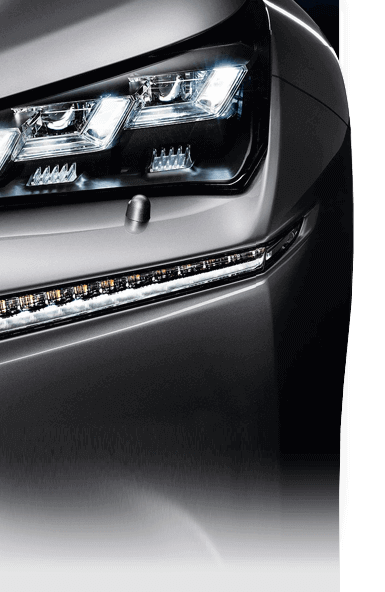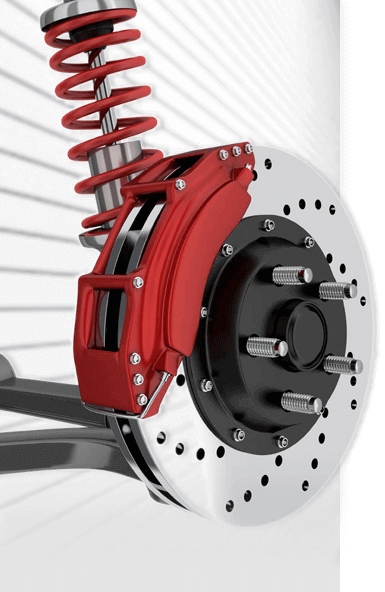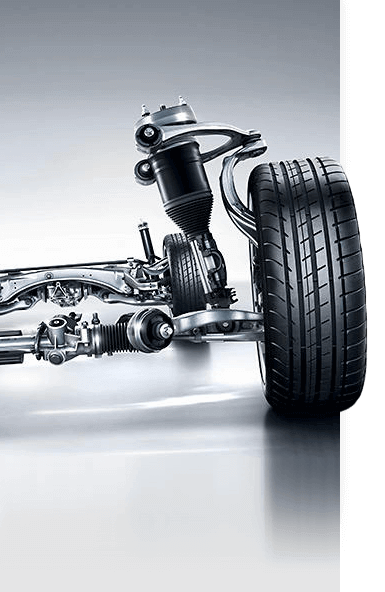- Interior
-
Exterior

-
 Running Boards
Running Boards -
 Custom Grilles
Custom Grilles -
 Body Trim
Body Trim -
 Body Kits
Body Kits -
 Off-Road Bumpers
Off-Road Bumpers -
 Bed Accessories
Bed Accessories -
 Grille Guards
Grille Guards -
 Towing & Hitches
Towing & Hitches -
 Tonneau Covers
Tonneau Covers -
 Spoilers
Spoilers -
 Roof Racks
Roof Racks -
 Car Covers
Car Covers -
 Custom Fender Flares
Custom Fender Flares -
 Mirrors
Mirrors -
 Bug Deflectors
Bug Deflectors -
 Car Bras
Car Bras -
 License Plates & Frames
License Plates & Frames -
 Light Covers
Light Covers -
 Winches
Winches -
 Bike Racks
Bike Racks -
 Wiper Blades
Wiper Blades -
 Mud Flaps
Mud Flaps -
 Sunroof Deflectors
Sunroof Deflectors -
 Armor & Protection
Armor & Protection -
 Jeep Soft + Hard Tops
Jeep Soft + Hard Tops -
 Spare Tire Covers & Carriers
Spare Tire Covers & Carriers -
 Snow Plows
Snow Plows -
 Custom Horns
Custom Horns -
 Auto Detailing
Auto Detailing
-
- Performance
- Lighting
- Wheels & Tires
- Accessories
-
Audio & Electronics

-
 Installation Parts
Installation Parts -
 Stereos
Stereos -
 Speakers
Speakers -
 Amplifiers
Amplifiers -
 Subwoofers & Boxes
Subwoofers & Boxes -
 Batteries & Power
Batteries & Power -
 Video
Video -
 Cameras & Driver Safety
Cameras & Driver Safety -
 Alarms & Remote Start
Alarms & Remote Start -
 GPS Systems
GPS Systems -
 Bluetooth
Bluetooth -
 Mounts & Chargers
Mounts & Chargers -
 Mobile Integration
Mobile Integration -
 Car Audio & Video
Car Audio & Video -
 Car Accessories
Car Accessories -
 Home Audio
Home Audio -
 Car Subwoofers & Boxes
Car Subwoofers & Boxes -
 Satellite Radio
Satellite Radio -
 Motorcycle Audio & GPS
Motorcycle Audio & GPS -
 Marine Audio & GPS
Marine Audio & GPS -
 Equalizers & Signal Processors
Equalizers & Signal Processors -
 Classic Car
Classic Car -
 Car Stereos
Car Stereos -
 Car Speakers
Car Speakers -
 Car Cameras & Video
Car Cameras & Video -
 Car Audio Add-Ons
Car Audio Add-Ons -
 Car Amplifiers & Equalizers
Car Amplifiers & Equalizers -
 Car Amplifiers
Car Amplifiers -
 ATV & UTV
ATV & UTV -
 Apple & Android Integration
Apple & Android Integration -
 RVs & Campers
RVs & Campers -
 Remote Start & Car Alarms
Remote Start & Car Alarms -
 Radar Detectors
Radar Detectors
-
-
Repair Parts

-
 Starting & Charging
Starting & Charging -
 Suspension Parts
Suspension Parts -
 Brake Parts
Brake Parts -
 Exhaust Parts
Exhaust Parts -
 Engine Parts
Engine Parts -
 Engine Cooling
Engine Cooling -
 Fuel Delivery
Fuel Delivery -
 Driveline & Axles
Driveline & Axles -
 Electrical Parts
Electrical Parts -
 A/C & Heating
A/C & Heating -
 Transmission Parts
Transmission Parts -
 Ignition Parts
Ignition Parts -
 Emission Control
Emission Control -
 Air Intake Parts
Air Intake Parts -
 Oils, Lubricants & Cleaners
Oils, Lubricants & Cleaners -
 Automotive Tools
Automotive Tools -
 Auto Repair Manuals
Auto Repair Manuals -
 Auto Detailing
Auto Detailing
-
- Body Parts
- Apparel
-
In The Know
-
Galleries
-
Vehicle Builder
-
- VEHICLE BUILDER
- Interior
-
Exterior
- Running Boards
- Custom Grilles
- Body Trim
- Body Kits
- Off-Road Bumpers
- Bed Accessories
- Grille Guards
- Towing & Hitches
- Tonneau Covers
- Spoilers
- Roof Racks
- Car Covers
- Custom Fender Flares
- Mirrors
- Bug Deflectors
- Car Bras
- License Plates & Frames
- Light Covers
- Winches
- Bike Racks
- Wiper Blades
- Mud Flaps
- Sunroof Deflectors
- Armor & Protection
- Jeep Soft + Hard Tops
- Spare Tire Covers & Carriers
- Snow Plows
- Custom Horns
- Auto Detailing
- SHOP ALL EXTERIOR
- Performance
- Lighting
- Wheels & Tires
- Accessories
-
Audio & Electronics
- Installation Parts
- Stereos
- Speakers
- Amplifiers
- Subwoofers & Boxes
- Batteries & Power
- Video
- Cameras & Driver Safety
- Alarms & Remote Start
- GPS Systems
- Bluetooth
- Mounts & Chargers
- Mobile Integration
- Car Audio & Video
- Car Accessories
- Home Audio
- Car Subwoofers & Boxes
- Satellite Radio
- Motorcycle Audio & GPS
- Marine Audio & GPS
- Equalizers & Signal Processors
- Classic Car
- Car Stereos
- Car Speakers
- Car Cameras & Video
- Car Audio Add-Ons
- Car Amplifiers & Equalizers
- Car Amplifiers
- ATV & UTV
- Apple & Android Integration
- RVs & Campers
- Remote Start & Car Alarms
- Radar Detectors
- SHOP ALL AUDIO & ELECTRONICS
-
Repair Parts
- Starting & Charging
- Suspension Parts
- Brake Parts
- Exhaust Parts
- Engine Parts
- Engine Cooling
- Fuel Delivery
- Driveline & Axles
- Electrical Parts
- A/C & Heating
- Transmission Parts
- Ignition Parts
- Emission Control
- Air Intake Parts
- Oils, Lubricants & Cleaners
- Automotive Tools
- Auto Repair Manuals
- Auto Detailing
- SHOP ALL REPAIR PARTS
- Body Parts
- Apparel
- VEHICLE BUILDER
-
...
More Pages
FEATURED
- Home
- E3 Spark Plugs
About E3 Spark Plugs
The spark plug is a critical device that supplies the spark (or flame kernel) for your car, truck, motorcycle or small engine. However, the basic plug design really hasn't changed that much since the original ones used by Henry Ford back in 1904. Our company was formed to find a better design that would provide E3 customers with performance advantages such as increased power, improved fuel efficiency and a reduction in hazardous engine emissions that can contribute to global warming. With decades of experience in spark plug engineering and the automotive aftermarket, the principals of E3 Spark Plugs realized that the key to producing a better spark plug did not lie in the use of fancy metals, such as iridium or platinum. Instead, it would require an entirely new approach in the design of the plug's electrode to improve the ignition of raw fuel inside the engine's combustion area. The first step would be to get rid of the antiquated J-wire electrode. This would allow the flame kernel to move directly toward the unburned air/fuel mixture. E3's initial research started in its own laboratories and led to the testing of new designs at two leading engineering universities. After investing in years of research and assisted by top professors in the field of combustion and engine dynamics, the DiamondFire ground electrode was developed as a better way to ignite the fuel-air mixture inside the engine's cylinder. Since this advanced design increased the combustion pressure inside the engine before raw fuel was exhausted, they had discovered a better way to control the burn. A faster flame speed and improvements in directing the spark inside the combustion area resulted in a marked (and proven) increase in power output, fuel efficiency and reduced emissions for gasoline-powered engines. These results were validated using the some of the most sophisticated testing equipment available. Over and over again, the new plug burned fuel more efficiently, improved power response and cut toxic emissions. Today, E3 remains dedicated to reducing greenhouse gas emissions by limiting the amount of unburned fuel.




































































































































